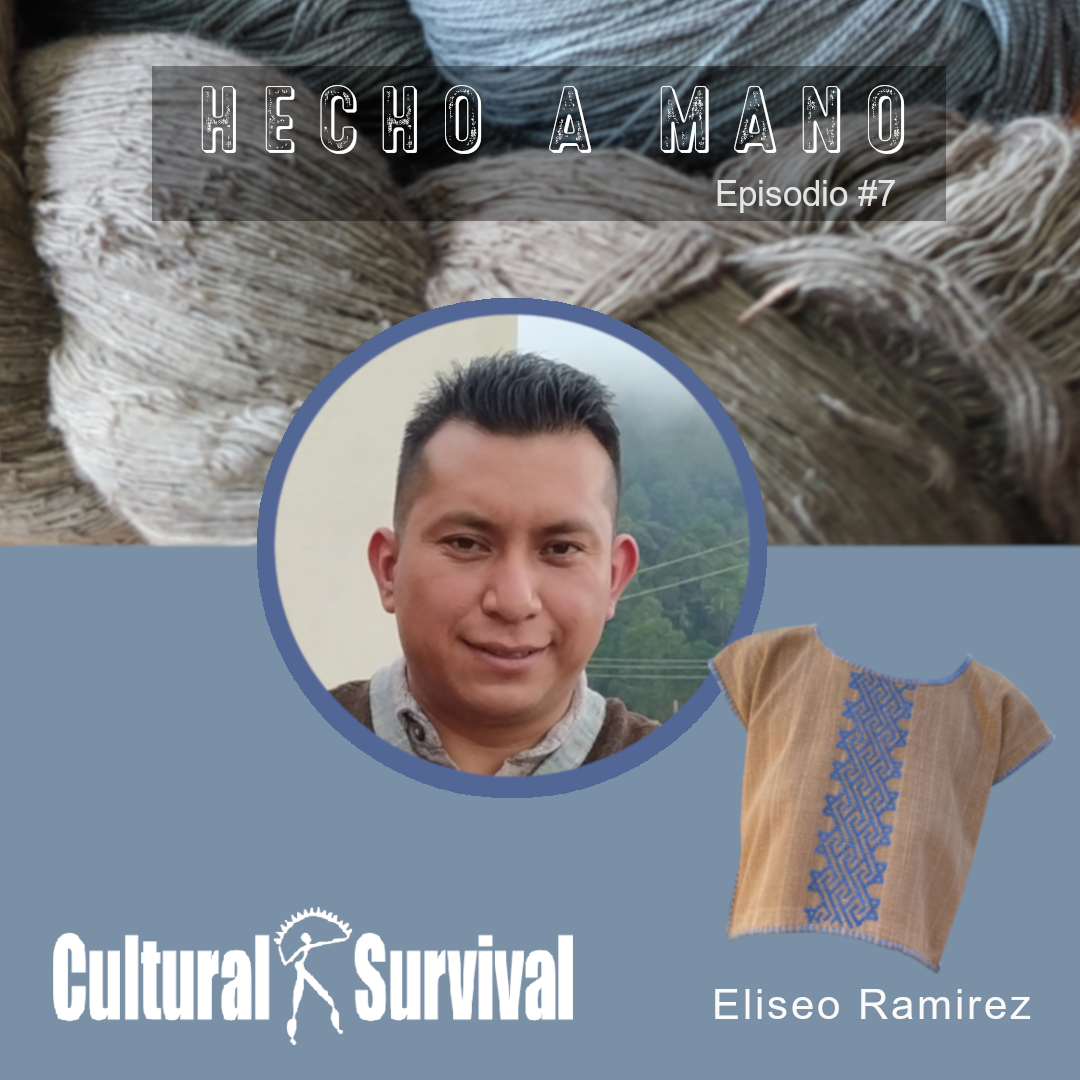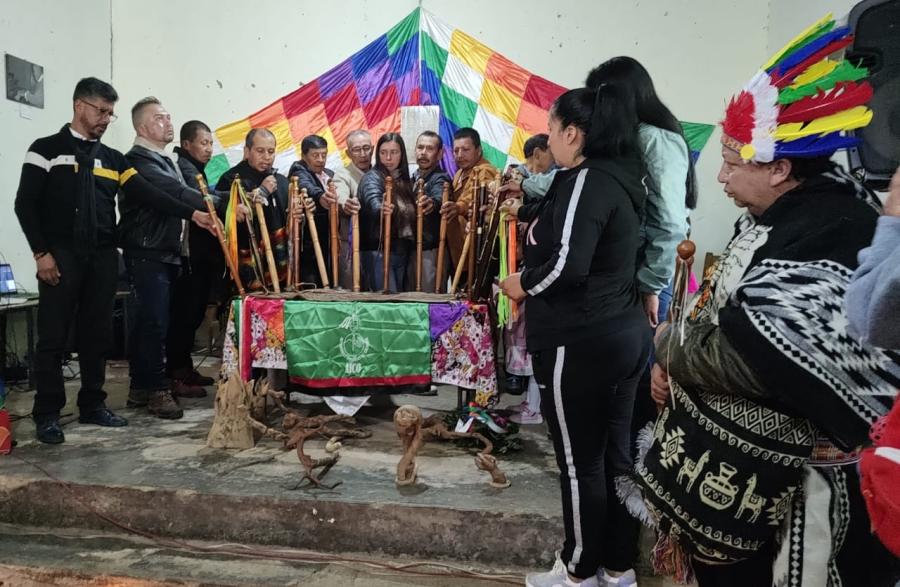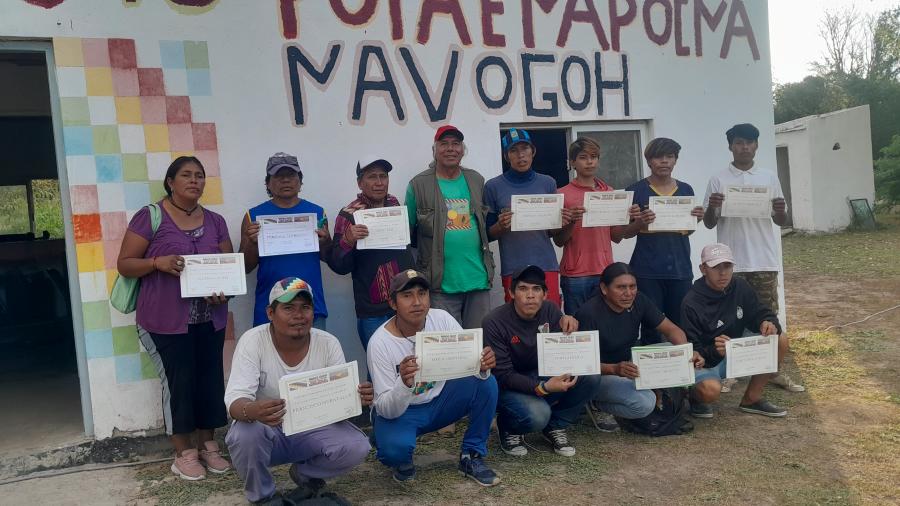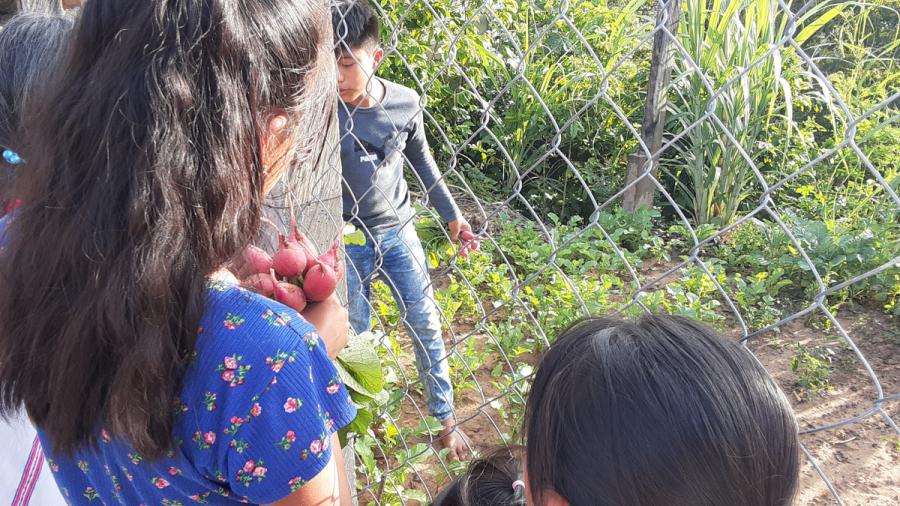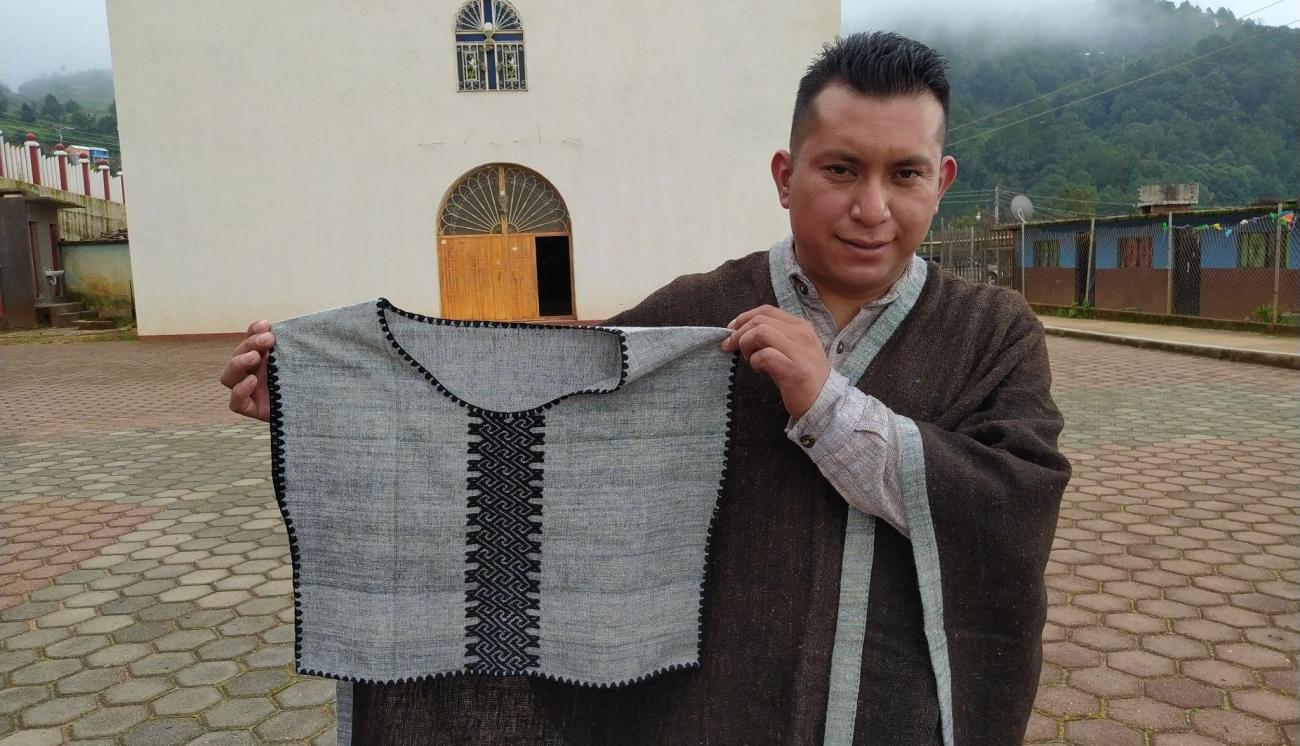
Bazaar Artist Spotlight
Eliseo Ramirez (Zapotec) was 23 years old when he decided he needed to make a concerted effort to help revitalize his Zapotec culture. As an artist and cooperative leader, he keeps his culture alive not only through his business, Khadi Oaxaca—a collective of over 450 local families and artisans weaving intricate designs and creating beautiful works of art but also through weaving workshops where cultural knowledge is passed down from generation to generation. “It makes me feel as though we can shelter and help one another and create a coexistence of knowledge in the world,” Ramirez says. “Spinning is something super beautiful and, as a young man, I love that there are so many young people interested in it. For example, a grandmother learned years ago, then she teaches her daughter, then the daughter teaches the granddaughter, so all this wisdom is being transmitted from generation to generation.”
Everyone involved puts their heart and soul into their work, and the collective works hard to ensure that the art is made with natural materials in a sustainable way that causes no harm to the environment. Ramirez states, “We grow [cotton] without any pesticides or herbicides on the coast here, in our state of Oaxaca. We also work with natural dyes like indigo, which is obtained from the community of Santiago Niltepec… We use oak bark, this is a very important material. We use the log for firewood and remove the bark and use it for dyes.” Ramirez aims to be a “light in the world,” exchanging knowledge freely with no envy or resentment and working in harmony with the natural world. “When I [talk] about being the light in the world, I also [mean] that we do not pollute the earth, we do not pollute the water,” he says.
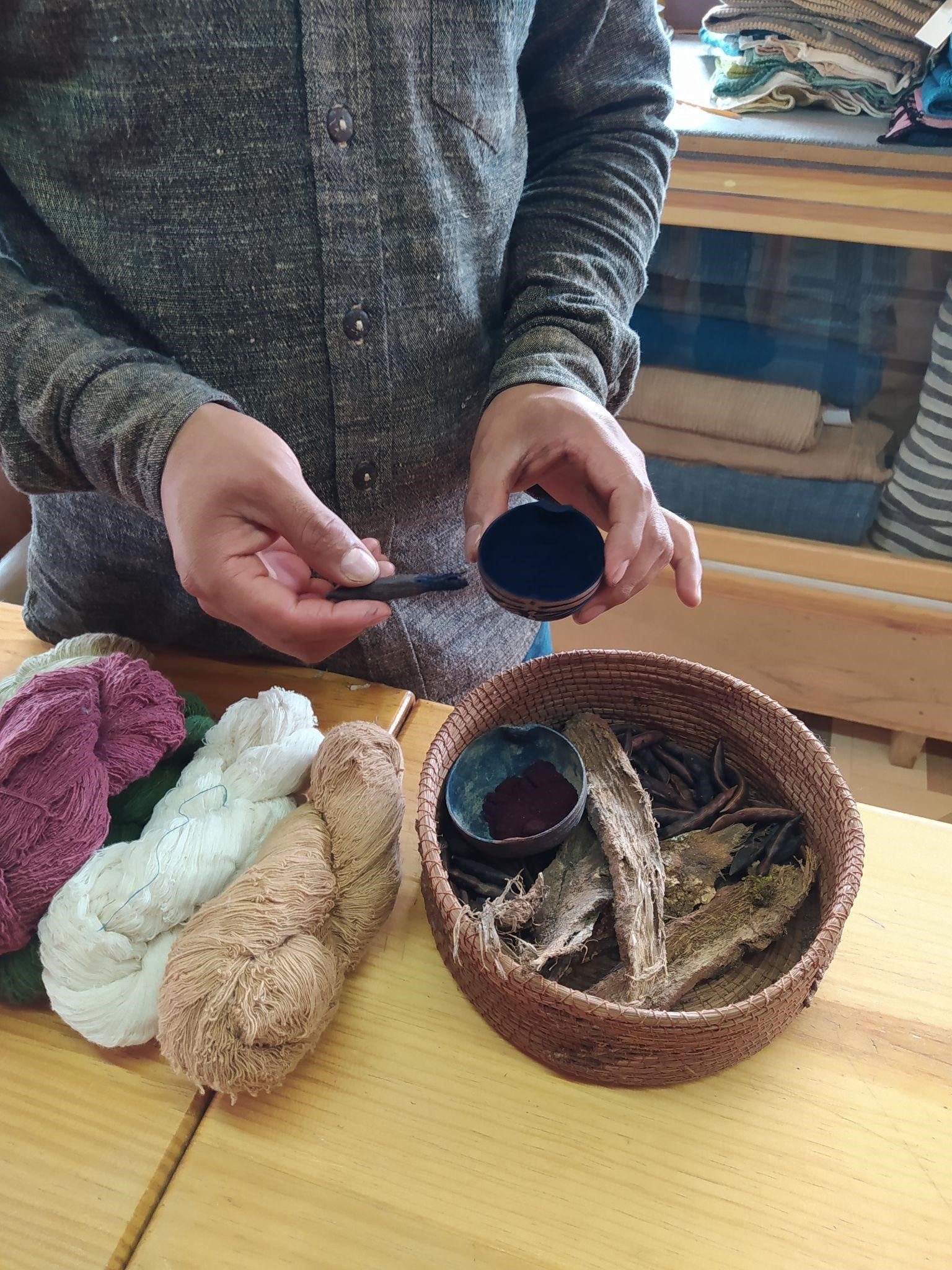
The collective has become an integral part of the local community, creating jobs in the community itself so that people are not forced to migrate away from their homes in order to earn a living. The pandemic has certainly had an effect on this stability, threatening the livelihoods of many in the collective. “With the pandemic, well, yes, it was a hard blow,” says Ramirez. “A year ago I truly thought that our collective was really going to close down forever because our sales in the months of April and May fell to zero.” But, with help from some friends and the power of social media, the collective has managed to stay afloat during uncertain times and sales are slowly but surely beginning to increase again.
These sales are vital to the collective, not only from a financial standpoint but also because they represent the appreciation that the wider public has for the art itself. “It really gives me a sense of satisfaction and accomplishment,” Ramirez explains. “It makes me emotional because it takes us so many hours to make a product and in the end, someone appreciates it. It fills me with joy, honestly, it fills me with happiness and it also motivates me to continue on with this project.” Ramirez draws inspiration from both his family and public support for his work and is motivated by the wisdom of his ancestors and the interest that his children show in the artistic process. “Khadi is everything to me,” he says. “Helping people is the best and it’s what I most enjoy doing… I do not want fame or wealth for myself, I want to share any achievements with all of the people that are involved, that is very important.”
Relating to his overall worldview, Ramirez supports his community, collaborates on designs, and works with natural and sustainable materials to produce his art. Through our interviews in the Hecho a Mano podcast, we find that the world through the eyes of an artist is oftentimes more caring, more community-driven, and more respectful toward the Earth. We can see this through Eliseo Ramiez and his community's work ethic which prioritizes taking care of the Earth, taking care of the people, and honoring the natural rhythms of life in the countryside.
The Cultural Survival Bazaars are annual celebrations of Indigenous arts, music, and cultures from around the world. All in-person Cultural Survival Bazaars in 2021 are postponed due to the pandemic. We have missed the in-person Bazaars and will soon announce the dates for the July 2022 Bazaar season. We hope to be together soon, safely, and in celebration of Indigenous art. Until then, please consider supporting and buying directly from our Bazaar artists by visiting our directory of artists at bazaar.cs.org.
